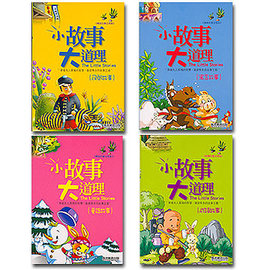What Are You Doing Chinese Words?
“你干嘛呢?” (ne gàn-má?)

What Is Ni Hao Ma?
Greetings, Friend N I h o m? (What's up?) 4 May 2022
What Is Mei You In Chinese?
Chinese characters for "haven't," "hasn't," "doesn't exist," "to not have," and "to not be" are "méi yu." 13 Feb 2019
How Do You Say Hello What Are You Doing In Chinese?
What Are You Doing? in Chinese: How to Say It N zhèngzài zu shénme is the first. 2. - N zài zu shénme. 3. - N zài gàn shénme 4. - N zài gànmá ne. 5. - Gànmá ne n 6. - Ngán shá ne.
How Do You Say What Are You Doing?
Here are a few substitutes: What are you up to these days? How are you spending your time? How have you been lately? How are things going now? How has it been recently? 20 Sept 2017
Do What You Want In Chinese?
0:241:01 What does "Do what you want!" sound like in Chinese? You Tube YouTube the proposed clip's beginning and end You want to do some pleasant young things for the ship. The things you want to undertake will definitely mean More You want to do some pleasant young things for the ship. The things you want to do are certain to be actions or events. Twani stores desire a man to explore the ship with a young crowd. Okay.
What Is Xie Xie Ni?
Xie Xie Ni is a term or phrase in Chinese. Translated into English: Thank you. 21 Mar 2002
How Do You Say Fine In Chinese?
I'm good. [example] 我很好 [wǒhěnhǎo] [ex.]
What Is Hen Hao?
"" signifies really good.
What Does Bu Yao?
Bu yao: Pronounced "boo yow," it means "no want," and refers to the persistent sales tactics of vendors.
What Does Shi Mean Chinese?
When you want to join two nouns (or pronouns) together in a sentence to describe what something or someone is, you use (sh) like the English verb "to be": 我是美国人。 (I am an American; w sh mi guó rén.) 23 Aug 2022
What Is Bushi In Mandarin?
This study seeks to draw the reader's attention to the peculiarities of the negative markers meiyou and bushi (which in Mandarin dialogue imply "not/no") in spoken language.
How Do Chinese Greet Each Other?
Handshakes are the traditional, informal greeting.
People bow gently or nod professionally to meet one another in formal settings.
When introduced to someone, the Chinese will rise up if they are seated out of respect.
Always extend a greeting to people who are older than you.
Why Do Chinese Bow 3 Times?
In Chinese tradition, bowing three times is a means to express respect for Heaven, Earth, and all living things. It is an act that makes us aware of the strength and mystique of something enormous and unfathomable. 24 Sept 2021
How Do You Introduce Yourself In Chinese?
The most typical and straightforward way to introduce yourself is to say "(W jiào)" after your name in Chinese. You can also use "W de mngzi jiào," "W sh," or "W de mngzi sh," then follow it with your name.
What Is Que Haces Mean?
What is done? is the equivalent in Spanish of the question "What are you doing?" Qué means "what" in Spanish, while hacer means "to do" in the language.
What Are You Doing Reply?
26 "Give me a few minutes, and everything will become plain to you." When you don't really know what you're doing but know it's a good idea, this is a useful tactic. This implies that once you're done, they'll comprehend more clearly. 27 I'm following your advice, you stated. 27 Apr 2020
What Is How Are You In Cantonese?
你好嗎? Cantonese for "néih hou ma" is "nei5 hou 2 maa". The Chinese character for "how are you?" (nei5 hou2 maa3) is pronounced as "How are you?" in English. 7 May 2021
What Is Wo Yao In Chinese?
"(wo yao yi ge...)" Its meaning is "I want one of those," and it is informal. This statement, when used in conjunction with pointing, got me pretty far in most restaurants and stores. 26 Nov 2018
How Do You Say Food In Chinese?
Chinese speakers typically refer to food in one of two ways: (fan4): Usually used when referring to a meal or something that is prepared for consumption. Given that rice is a component of almost every Chinese meal, it also implies "rice." Food in general—often before it is cooked and prepared—is referred to as (shi2 wu4). 16 Aug 2017
What Is The Difference Between Yao And Xiang?
Because they are not as powerful as each other, can frequently be a more courteous replacement for For instance, saying is typically more polite than saying when ordering or requesting anything. Another characteristic of is that it can be used in conjunction with either or to denote "truly would like to" or "really want to."
What Is Bu Ke Qi?
不客气 Trad. 不客氣 bù kè qi. You're welcome, but don't be nasty or blunt about it. Use-Example Strokes.
What Is Bu Yong Xie?
(B Y N G Xiè). This literally means "thanks but no thanks." Bù means "no," yang "to use," and xiè, which comes from "Xiè xie," meaning "thank you." The phrase "no use thank you" actually means that there is no need to express gratitude.
What Is Dui Bu Qi Mean?
sorry April 10, 2019 update There are numerous ways to express regret in Mandarin Chinese, but one of the most widely used and flexible expressions is "du bu q." It signifies "sorry" in the sense that you wish to express your regret for wronging someone. 10 Apr 2019